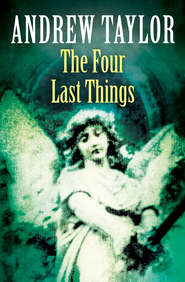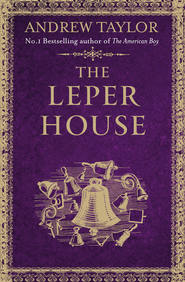По всем вопросам обращайтесь на: info@litportal.ru
(©) 2003-2024.
✖
The Silent Boy
Автор
Год написания книги
2018
Настройки чтения
Размер шрифта
Высота строк
Поля
‘She was stabbed, I understand,’ Rampton went on in a rush. ‘It must have been a quick death, at least. And the place was ransacked.’
Savill turned his head so Rampton could not see his face. He thought of Augusta as she had been when he had first seen her: at Mr Rampton’s house in Westminster. Seventeen, coolly beautiful even then, with a way of looking at you that would heat the blood of any man. Ice and fire.
‘We must look ahead,’ Rampton said. ‘Sad though this occasion is, sir, I believe I should congratulate you.’
Savill stared at him. ‘What?’
‘You are free at last, sir. Should you wish to marry again, there is now no impediment to your doing so. Your unhappy condition, this limbo you have been in, cannot have been easy for you.’
That was true enough. Augusta had given Savill ample grounds for divorce when she eloped so publicly with her German lover to the Continent, while he himself had been three thousand miles away in America. But divorce was a rich man’s luxury, even when the husband was so clearly the injured party.
‘This will draw a line under the whole sad affair,’ Mr Rampton went on.
‘She was my wife, sir,’ Savill said. ‘Not an affair.’
Rampton spread his hands. ‘My dear sir, I intended no disrespect to the dead.’ He folded his hands on his lap. ‘I fear I have been clumsy. You have had a shock. Will you take a glass of wine? A cup of tea?’
‘Thank you, no. Tell me the rest.’
‘I do not yet know the whole of it. But I am told that someone informed a friend of hers, a Monsieur Fournier, and he communicated with the Embassy. Everything was done as it should be, which must be a great comfort. There was a doctor in attendance to certify the death. A notary took down a statement concerning the circumstances of her demise, and it was signed by witnesses.’
Savill gazed out of the window. The swallows were still there but they had moved further away. Like charred leaves above a bonfire, he thought. A pyre.
Rampton cleared his throat. ‘It would give me great pleasure if you would stay and dine.’
‘Thank you, but I believe I shall ride back to London.’
‘There’s plenty of time yet,’ Rampton said. ‘And there is something else that we need to discuss which may perhaps take a while.’
Rampton paused. Savill said nothing.
‘There are the documents I mentioned,’ Rampton said. ‘The notary’s statement and the death certificate.’
‘If you have them, sir, I shall take them now,’ Savill said. ‘If not, then perhaps you would send them to me. You know my direction. Nightingale Lane, near Bedford Square.’
‘I don’t have them. They are in the possession of Monsieur Fournier. And he has something else of hers that may interest you.’
‘I doubt it,’ Savill said, rising from his chair. ‘There is nothing of my late wife’s that interests me.’
‘The matter is more delicate than it first might appear,’ Mr Rampton said. ‘And that is why I asked you to wait on me here at Vardells and not in town.’ He smiled up at Savill with unexpected sweetness. ‘Augusta had a son.’
Chapter Five (#ulink_f68edc71-d062-525d-9042-c30f43754686)
‘That scar on your cheek from New York,’ Rampton said when they were at table. ‘I had expected the wound to have healed better over the years. Does it pain you?’
‘Not at all,’ Savill said. ‘Why should it, after all this time?’
‘I’m rejoiced to hear it, sir.’
Rampton had ordered the curtains drawn and the candles lit, shutting out the blue sky and the swallows. Even in the country, he lived in some state. There were two manservants to wait at table. The food was good and the wine was better. The presence of the servants kept the conversation on general topics.
‘And how is your little daughter?’ he asked as Savill was helping himself to a delicately flavoured fricassee of chicken.
‘Lizzie?’ Savill glanced down the table. ‘Your goddaughter is in good health, sir, but she is not so little now.’
‘Good, good.’ Rampton nodded and looked pleased: it was as if the excellence of Lizzie’s health was something he himself had worked towards, something for which he could take credit, had he not modestly waived his right to it. ‘Is she like her mother?’
‘Yes. In appearance. Her face is softer, perhaps, gentler.’
‘As long as her character does not resemble her mother’s. Let us pray it does not.’
Savill said nothing.
‘Her mother was very beautiful at her age. If Elizabeth takes after her, she will have plenty of suitors. I dare say she will soon be of an age to marry.’
‘Should she wish to, sir, yes. If she finds a man who pleases her.’
‘If you take my advice, sir, you will encourage her to do so as soon as possible.’ Rampton dabbed his lips with his napkin. ‘Though it’s an expensive business, of course. Marriage, I mean. However one looks at it.’ He applied himself to a dish of lamb cutlets.
Savill sensed something unsaid here; he caught the ghost of its absence. ‘Is this your main residence now, sir?’ he asked.
‘Alas, no – I am much at Westminster. I must own I wish it were otherwise. I find I have a taste for country life. Of course this is little more than a cottage, and there’s barely fifty acres with it. But it’s enough for my simple wants. I’m building a wing to accommodate my library with bedrooms above, with a fine prospect over the garden. In the spring, I shall improve the prospect still further by sweeping away those old hedgerows and farm buildings to the west of the drive. Then it will be perfection.’
If this is a cottage, Savill thought, then I am a unicorn. The house had been refurbished since he had last been here. It now sat in grounds that were in the process of being newly laid out; on the east side of the drive, a great expanse of grass swept towards a small lake that had not been there before. As for the house, the new wing would increase its volume almost by half as much again. The work was nearly finished. Earlier in the day, carpenters had been fitting the French windows that would open from the library to the terrace.
‘Will you retire here, sir?’
‘Retire?’ Rampton smiled. ‘I doubt my masters would permit me to do that, not while this crisis continues in France. And God knows how long that will last. I tell you frankly, sir, I see no sign of its ending.’
‘You do not think that the King and the National Convention will come to an accommodation?’
Rampton’s smile did not waver. ‘That is for wiser heads than yours or mine to decide.’ He turned the subject smoothly. ‘But when I do retire, it will be delightful to be here.’
‘Will you not find it sadly dull?’
‘Not in the slightest. I shall have my books, of course, and I have a mind to turn farmer.’ Rampton crooked his finger at the servant who sprang from the shadows to refill Savill’s glass. ‘I have bought two or three tenanted farms nearby. I may take them into my own hands. A toast, sir – to your Elizabeth. May she find herself a husband that suits you both.’
Savill drank. He had once been a civil servant, and in those days he had known Mr Rampton’s ways as a dog knows his master’s. Rampton had not been talking idly during the meal. He had been making sure that Savill understood him.
‘I am rich,’ he was saying, ‘and I have the ear of powerful men, so you would be wise to oblige me. For your daughter’s sake as well as your own.’
With unnatural reverence, the servants removed the cloth and set out the wine, the nuts and the fruit. Rampton signalled for them to withdraw. The two men were sitting side by side now.
Savill bit down on a walnut and a stab of pain drove into his jaw. He twitched on his chair but managed to avoid crying out. He must find time to have the offending tooth pulled out. The truth was, he told himself, he was a coward where his teeth were concerned.
‘A toast, sir,’ Rampton said.
Savill pushed aside his plate and took up his glass with relief. They drank His Majesty’s health. Avoiding each other’s eyes, they drank to Augusta’s memory. Then the conversation faltered.











